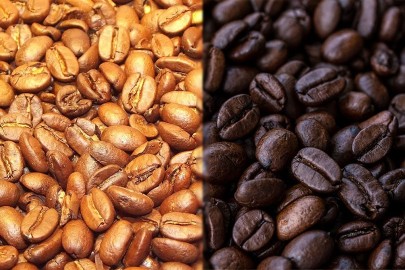


Learn about calories, antioxidants, caffeine content, vitamins, minerals, and the health benefits of choosing organic medium roast coffee.
Coffee is more than just a morning pick-me-up. Organic coffee beans medium roast offer not only a delightful aroma and smooth taste but also a host of nutritional benefits. Choosing organic beans ensures that you avoid harmful chemicals while enjoying a beverage rich in antioxidants and essential compounds.
Medium roast strikes a perfect balance between light and dark roast, preserving key nutrients while enhancing the flavor. This article will explore the nutrition facts of organic coffee beans, their health benefits, and how they can fit into a balanced diet.
Medium roast are coffee beans grown using organic farming practices without synthetic fertilizers, pesticides, or genetically modified organisms (GMOs).
Medium roast characteristics:
Roasted to a medium level, around 410°F–428°F (210–220°C)
Balanced flavor: smooth, slightly sweet, with caramel, chocolate, or nutty notes
Retains essential antioxidants and nutrients better than dark roast
This roast is popular because it preserves the health-promoting compounds of coffee while offering a smooth and enjoyable taste suitable for most brewing methods.
Although brewed coffee is low in calories, the beans themselves contain several nutrients and beneficial compounds. The nutrition profile can vary slightly depending on origin and processing methods.
Black brewed coffee has approximately 2–5 calories per 8 oz cup
Medium roast retains natural sugars, but the calorie content remains low
Protein: ~0.3 g per 8 oz cup
Fat: 0 g (negligible)
Carbohydrates: ~0 g (mostly soluble fiber in unbrewed beans)
Organic medium roast coffee contains 80–120 mg of caffeine per 8 oz cup
Slightly lower than dark roast due to roasting process, but enough to enhance alertness
Organic coffee is rich in antioxidants, which help combat oxidative stress and protect cells. Medium roast retains key compounds such as:
Chlorogenic acids – support heart health and regulate blood sugar
Polyphenols – reduce inflammation and oxidative damage
Roasting affects the nutritional content of coffee beans:
Light Roast: Retains more chlorogenic acids but has a higher acidity
Medium Roast: Balanced retention of antioxidants and flavor
Dark Roast: Fewer antioxidants but stronger flavor and lower acidity
Medium roast preserves a significant amount of chlorogenic acids while creating caramelization, smooth body, and balanced flavor. This makes it a great choice for both taste and nutrition.
Choosing medium roast organic coffee beans offers additional advantages over conventionally grown coffee:
| Feature | Organic Coffee | Conventional Coffee |
|---|---|---|
| Pesticide Exposure | None | May contain residues |
| Antioxidant Levels | Higher | Slightly lower |
| Environmental Impact | Sustainable | Often harmful |
| Taste | Rich, clean flavor | Can be less consistent |
Organic coffee ensures you enjoy maximum nutrition without chemical contaminants, making it safer for long-term consumption.
The brewing method can influence the nutritional content of your medium roast coffee:
Drip Coffee: Retains most antioxidants and caffeine
French Press: Slightly higher in diterpenes, which may affect cholesterol in large amounts
Espresso: Higher concentration of nutrients per ounce, but smaller serving sizes
Cold Brew: Lower acidity, smooth taste, retains antioxidants
Tip: Avoid adding excessive sugar or cream to maintain the nutritional benefits.
Medium roast coffee beans are more than just a flavorful beverage. They are a low-calorie, nutrient-rich option packed with antioxidants, vitamins, and minerals. Medium roasting preserves the natural compounds while offering a smooth, balanced flavor profile that works well with various brewing methods.
Choosing organic ensures that your coffee is free from synthetic chemicals and supports sustainable farming practices. By incorporating medium roast organic coffee into your daily routine, you can enjoy both the taste and nutritional benefits responsibly.
Bottom Line: Medium roast organic coffee is the perfect combination of taste, health, and sustainability a cup you can feel good about.
1. How many calories are in medium roast organic coffee?
Brewed black coffee contains approximately 2–5 calories per 8 oz cup, making it extremely low-calorie.
2. Does medium roast coffee have more antioxidants than dark roast?
Yes, medium roast retains more chlorogenic acids and antioxidants compared to dark roast.
3. Is organic coffee healthier than conventional coffee?
Organic coffee is free from pesticides and chemicals, making it a safer and potentially healthier choice.
4. How much caffeine is in an 8 oz cup of medium roast coffee?
It contains about 80–120 mg of caffeine, depending on the bean origin and brewing method.
5. Can medium roast coffee aid in weight management?
Yes, its low-calorie content and metabolism-boosting properties can support weight management when consumed in moderation.
